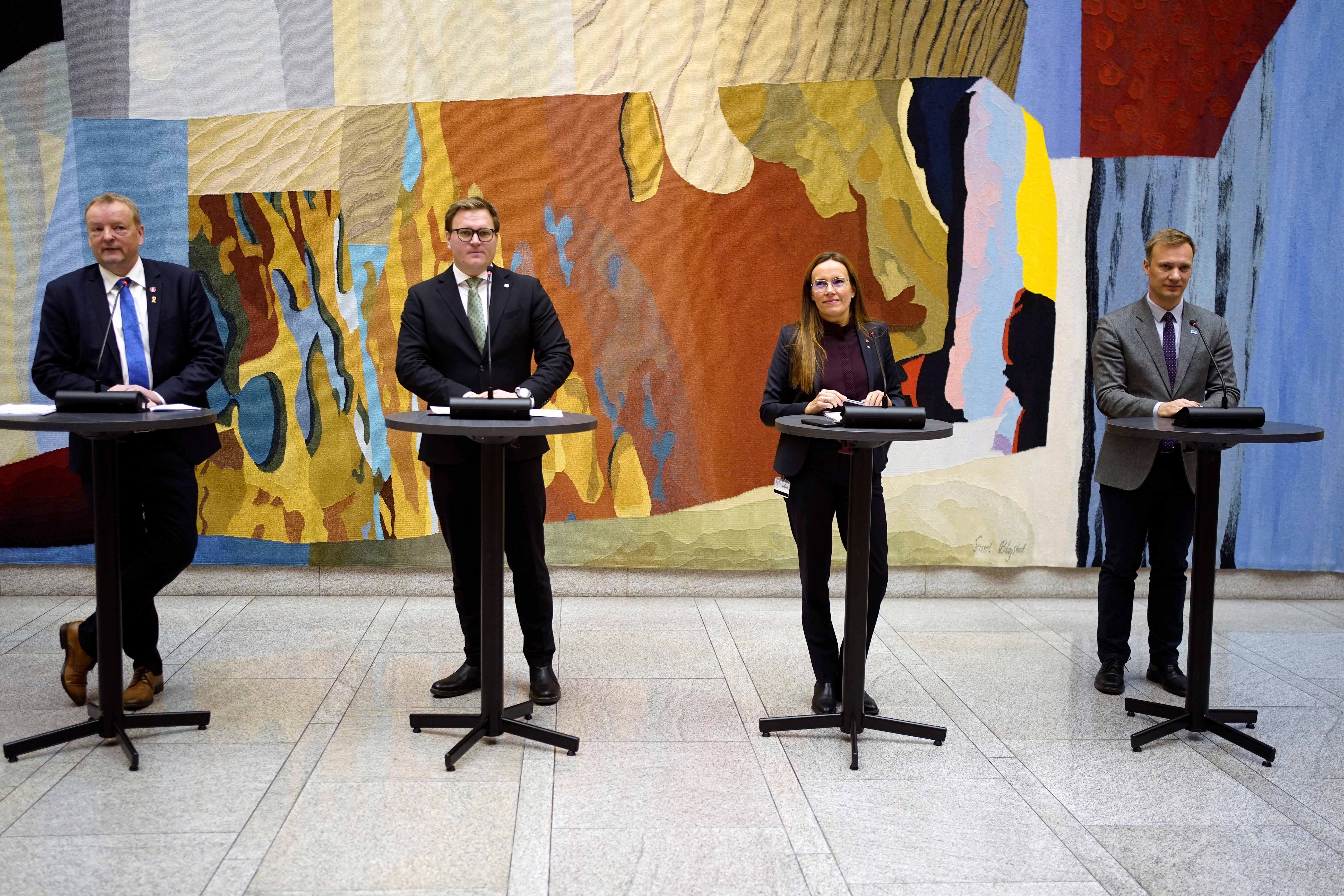Lawmakers in Norway make a deal opening up for deep sea mining in Arctic
Norway’s government and two large opposition parties have agreed to allow seabed mineral exploration in the Arctic

Norway’s minority center-left government and two large opposition parties made a deal Tuesday to open the Arctic Ocean to seabed mineral exploration despite warnings by environmental groups that it would threaten the biodiversity of the vulnerable ecosystems in the area.
Norway said in June it wanted to open parts of the Norwegian continental shelf for commercial deep sea mining in line with the country’s strategy to seek new economic opportunities and reduce its reliance on oil and gas.
“This is a disaster for the sea,” said Frode Pleym, head of the local chapter of Greenpeace. “Norway is now allowing irreversible interventions in areas where nature is completely unknown.”
Martin Sveinssønn Melvær of the Norwegian Bellona environmental group said it was “completely contrary to scientific recommendations" and believes “it is a dangerous derailment in the fight against climate change to open up seabed minerals.”
The government – made up of the Labor and the Center Party – made the deal with the conservatives from Hoeyre and the Progress Party, Norwegian news agency NTB said.
It said they had agreed on a step-by-step opening process where the Norwegian parliament, or Stortinget, will approve the first development projects, in the same way as it has done for certain extraction projects in the petroleum sector.
The Scandinavian country, which is one of the world’s wealthiest countries due to its vast oil and gas reserves, says there are significant mineral resources on the seabed of the Norwegian continental shelf.
According to the Norwegian Petroleum Directorate, there are sulphides and manganese crusts containing metals and minerals that are crucial for making batteries, wind turbines, PCs and mobile phones.
If proven to be profitable, and if extraction can be done sustainably, seabed mineral activities can strengthen the economy, including employment in Norway, while ensuring the supply of crucial metals for the world’s transition to sustainable energy, the Ministry of Petroleum and Energy said in June.
The planned area is located southwest of the Arctic island of Svalbard.
Bookmark popover
Removed from bookmarks